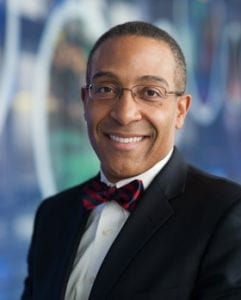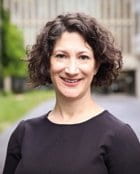From The Huddle: Welcome, UW Residents and Fellows
 This year we are welcoming the largest incoming group of residents and fellows to UW Medicine. Incoming, current and outgoing trainees share their experiences and top advice.
This year we are welcoming the largest incoming group of residents and fellows to UW Medicine. Incoming, current and outgoing trainees share their experiences and top advice.
 This year we are welcoming the largest incoming group of residents and fellows to UW Medicine. Incoming, current and outgoing trainees share their experiences and top advice.
This year we are welcoming the largest incoming group of residents and fellows to UW Medicine. Incoming, current and outgoing trainees share their experiences and top advice.
 Welcome! We are excited that you are here to begin your new journey with us.
Welcome! We are excited that you are here to begin your new journey with us.
Many of you have traveled from around the country – and from around the world – to be at the University of Washington School of Medicine. You are coming with eagerness to learn and wide-eyed curiosity about this next chapter in your life. It is an exciting time!
Although we have all faced challenges and uncertainty this year – the year of the COVID-19 pandemic – we want you to know that we are here for you. World-class faculty and staff are committed to teaching you and to helping you as you start your journey. We want you to gain all of the experiences and have all of the learning opportunities you need to do your work. We want you to feel that you are working in a learning environment that is safe, inclusive and equitable.
Our new GME mission statement embraces all that we want you to be as you develop your own sense of doctoring within our system:
To improve the health of the public by fostering the professional growth of physician-leaders within a supportive and dynamic culture of learning, building the foundation for a workforce that represents and enhances the communities we serve.
As in all learning environments, there will be uncertainty during your training, not only because of the unpredictability of COVID-19, but because you will be – and should be – learning new things about your chosen specialty. You will meet new colleagues and friends. You will encounter new interdisciplinary teams with whom you collaboratively will learn to take care of patients and, along the way, you will learn more about yourself.
Matriculating now into your new residency or fellowship program should be an adventure – even for those of you who are UW alumni returning as subspecialty fellows. Our top priority is to offer you the best clinical learning environment so that you can develop the skills, behaviors, and attitudes you will need to be successful, independent doctors.
You are one of the amazing high-caliber physicians-and dentists in-training that sets UW apart from other institutions. The new wave of nearly 500 residents and fellows joining us over the next 3 months only highlights this point. You represent an exceptionally diverse and exceedingly qualified class who will enrich each other’s lives and learning experiences.
Read more in the UW Medicine Welcome to our incoming class in The Huddle.
Exceptional.
In some, cases nearly 33% of all US medical school graduates going into your specialty applied to your UW program, and you are among the select few to be admitted to our very competitive programs.
Diverse.
This is no accident. Diversity and inclusion are core values of UW Medicine and are affiliated training hospitals.
Qualified.
Graduate Medical Education (GME). GME programs sponsored by the UW School of Medicine are designed to train physicians with habits of life-long learning and mature ethical and professional approaches to their practice.
UW Medicine. Among nearly 900 institutions, UW SOM is the 5th largest in the number of programs accredited by the Accreditation Council for Graduate Medical Education (ACGME), and 8th largest in the number of trainees. The UW SOM offers over 120 residency and clinical fellowship programs and partners with the School of Dentistry to support 4 dental residency programs which are accredited by the Commission On Dental Accreditation (CODA). The GME Office oversees more than 70 non-ACGME accredited fellowship programs, too!
For more information about our accredited programs, see the Residency and Clinical Fellowship Programs.
WWAMI. UW Medicine is by far the largest sponsor of GME programs in the five-state region known as WWAMI, which includes Washington, Wyoming, Alaska, Montana and Idaho (WWAMI). UW Medicine has a very important role in building a physician workforce capable of meeting the requirements of a rapidly-evolving healthcare environment for urban, rural and underserved areas in our region.
In addition to Seattle-based training, there are three distinct models for GME across the WWAMI region – Community Based–UW Affiliated, Regional Training Tracks, and Regional Resident Rotations.
GME Leadership. We are responsible for the administrative oversight and academic quality of UW’s residency and clinical fellowship programs. Most importantly, we are here for you. We want you to feel safe in an environment where you can learn. The GME leaders listed below oversee an amazing and committed team that supports residents, fellows and programs in the UWSOM.
Please contact any of us with questions, comments, or concerns.
For reference materials, useful forms, and information on the various benefits that are available to residents and fellows at UW, please see the Incoming Residents & Fellows and Current Residents & Fellows pages of this website. Many pertinent details surrounding your rights and responsibilities can be found in the Residency and Fellowship Position Appointment (RFPA) Agreement 2021-2022.
Wellness. Be on the lookout for The Wellness Corner, a monthly blog post from the GME Wellness Service containing information highlighting wellness activities and opportunities in Seattle and around Puget Sound. At this time, for your safety and the safety of the public, we are following Governor Jay Inslee’s Roadmap to Recovery phased reopening plan. We look forward to the time when you can hang up your white coat, get out of the hospital – and your home – and enjoy the life that indeed does exist outside of residency or fellowship training.
COVID-19 Culture. In the context of COVID-19, we must continue to be mindful and vigilant. The UW will require faculty and other academic personnel, staff, student employees, and trainees to be vaccinated against COVID-19 by autumn quarter in order to work on our campuses or within our facilities. All of our hospitals require the 3 W’s: washing your hands, wearing your mask, and watching your distance. Look out for each other and for yourselves. We are slowly recovering and will continue to do so as long as we work together!
I look forward to working with you on new initiatives and ideas that will address the challenges we now face head-on. And, for all the new and exciting things this academic year will certainly bring for you, the GME Office’s core priorities remain the same: that you receive the best possible education, achieve and maintain a healthy work-life balance, and make a real difference for the patients that you serve. Our most significant wins and defining achievements in GME have always been rooted in housestaff ideas and in their participation.
In order for me to best do my job, I need to, and would like to, hear from you – all of you. Your engagement is critical to ensuring that we have the best possible education program for you, as well as for the patients we serve.
Some of you chose to match with our programs without ever having been to our campus. COVID-19 did not allow us to conduct safe, in-person interviews last year but that will not stop us from ensuring that you have everything you need to become a successful part of our system.
It is my distinct pleasure to welcome all of you to the University of Washington. I look forward to working with you and to embrace the opportunities and challenges that await us in the 2021-2022 academic year.
Be well and stay healthy!
Byron D. Joyner, MD, MPA
Vice Dean and Designated Institutional Official (DIO)
Graduate Medical Education, UW Medicine

Dear GME Community,
First, welcome to the almost 500 residents and fellows who are joining us for 2021-22! We also want to say congratulations and good luck to those graduating at the end of June and July.
Dr. Joyner and Dipti Chrastka and I really enjoyed meeting those of you who dropped by to pick up lunch on Thursday at Harborview Medical Center. We’ll continue to host these GME Drop In sessions through the year and our next will be at UWMC in August. More information to come!
The June/July academic year transition is always a very busy time of year in the GME world. This issue of GME News & Notes is packed with information – awards, publications, opportunities, new leadership and team members, etc.
Many thanks to those who reached out to me with information to share here. Please continue to do so by sending to me at hamrac@uw.edu.

Cindy Hamra
Assistant Dean of GME
2020-2021 GME Committee Transitions: Thank you to the following individuals for their service on our GME committees during AY21:
Publications, Awards, and Staffing Updates
GME Policy Updates
The GMEC approved changes to several policies at the June Committee meeting. Updated policies are on the Policies and Procedures page of the GME website.
 Dear Graduating Residents and Fellows,
Dear Graduating Residents and Fellows,
This year has been unusually challenging, with enormous loss of human life, social and economic disruption, and dramatic disparities in public health. You have completed your training amidst the crisis of a lifetime.
We want to thank each of you for your help during this past year and a half. Thank you for your commitment to learning and teaching. Thank you for trusting UW Medicine with your development. In spite of the chaos and the unknown, we hope that your learning environment has been safe and your education, one that is memorable.
This time of the academic year is joyful and bittersweet, as we say goodbye to those completing training programs. We recognize that the University’s decision to prohibit UW-sanctioned in person graduation events is difficult as it limits your ability to celebrate your successes. Some of you have been with us just a short time, some much longer. Thanks to each of you for your efforts in supporting the UW Medicine mission: “to improve the health of the public.”
Our hope is that you have become better physicians because of being here. Our community is certainly better for having had you with us. We are proud of you and look forward to the contributions you will make to the field of medicine as a representative of the University of Washington.
Congratulations and best of luck!
Byron Joyner, MD, MPA
Vice Dean for GME and DIO
Jennifer Best, MD
Associate Dean, Accreditation and Education
Cindy Hamra, JD
Assistant Dean, Operations and Administration

If you have feedback, and/or information or events that you would like us to include in future posts, please send them to me at hamrac@uw.edu.

Cindy Hamra
Assistant Dean of GME